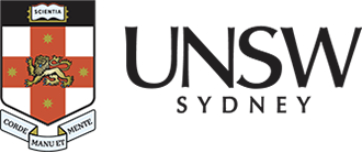

Airbus Defence and Space has selected the University of New South Wales (UNSW) in Sydney, Australia, to conduct a 3-1/2 year research project for the development of high efficiency solar cells for use in space. The research will help push the performance of photovoltaic solar cells for Space to the limit, both in terms of efficiency and radiation stability in the space environment.
This research project will be led by Professor Ned Ekins-Daukes at the UNSW Sydney School of Photovoltaic & Renewable Energy Engineering. Prof. Ekins-Daukes has previously developed nanostructured, strain-balanced, photovoltaic absorbers that have utility for solar power conversion in the space environment.
This research project involves a focus on the solar cells that are presently used to power spacecraft composed of several different layers of semiconductor materials that selectively absorb different parts of the solar spectrum. This selectivity enables the solar cells to operate more efficiently than the standard silicon solar cells used on domestic rooftops.
The project will explore the merit of introducing patterned, non-planar layers into the solar cell structure, a technique known as interstitial light-trapping, which can further confine particular wavelengths of light into particular layers of the solar cell.
The project will be supported Dr. Phoebe Pearce, a Research Fellow with the ARC Centre of Excellence for Exciton Science at UNSW, and Dr. Michael Nielsen, UNSW Scientia Research Fellow.
Richard Franklin, Managing Director, Airbus Defence and Space UK, said, “We are pleased to partner with UNSW Sydney for such an exciting development. This is another example of the world class research capabilities to be found in Australia, and in partnering with UNSW Sydney, we aim to bring these leading-edge research results to applications in space. Airbus aims to develop new capabilities for the space industry and is committed to build the local space eco-system in Australia.”
Professor Ned Ekins-Daukes said, “Our research on high efficiency solar cells can help extend the operational life of a spacecraft and lead to light-weight, lower-cost solar arrays. We are excited to work with a global leader in the space industry, opening opportunities for commercialisation of this technology in Australia and internationally. Partnering with Airbus’ experts will help us to understand the broader aerospace industry requirements for solar power and realise the full potential for these future solar power technologies.”
Vice Admiral Professor Paul Maddison, Director of the UNSW Defence Research Institute, said, “The partnership with Airbus will capitalise on UNSW’s research strengths and capabilities in the development of high efficiency solar cells for use in space. This project is a perfect example of industry and academia accelerating collaboration to develop and commercialize technologies to benefit and support the defence and Space sectors in Australia.”

